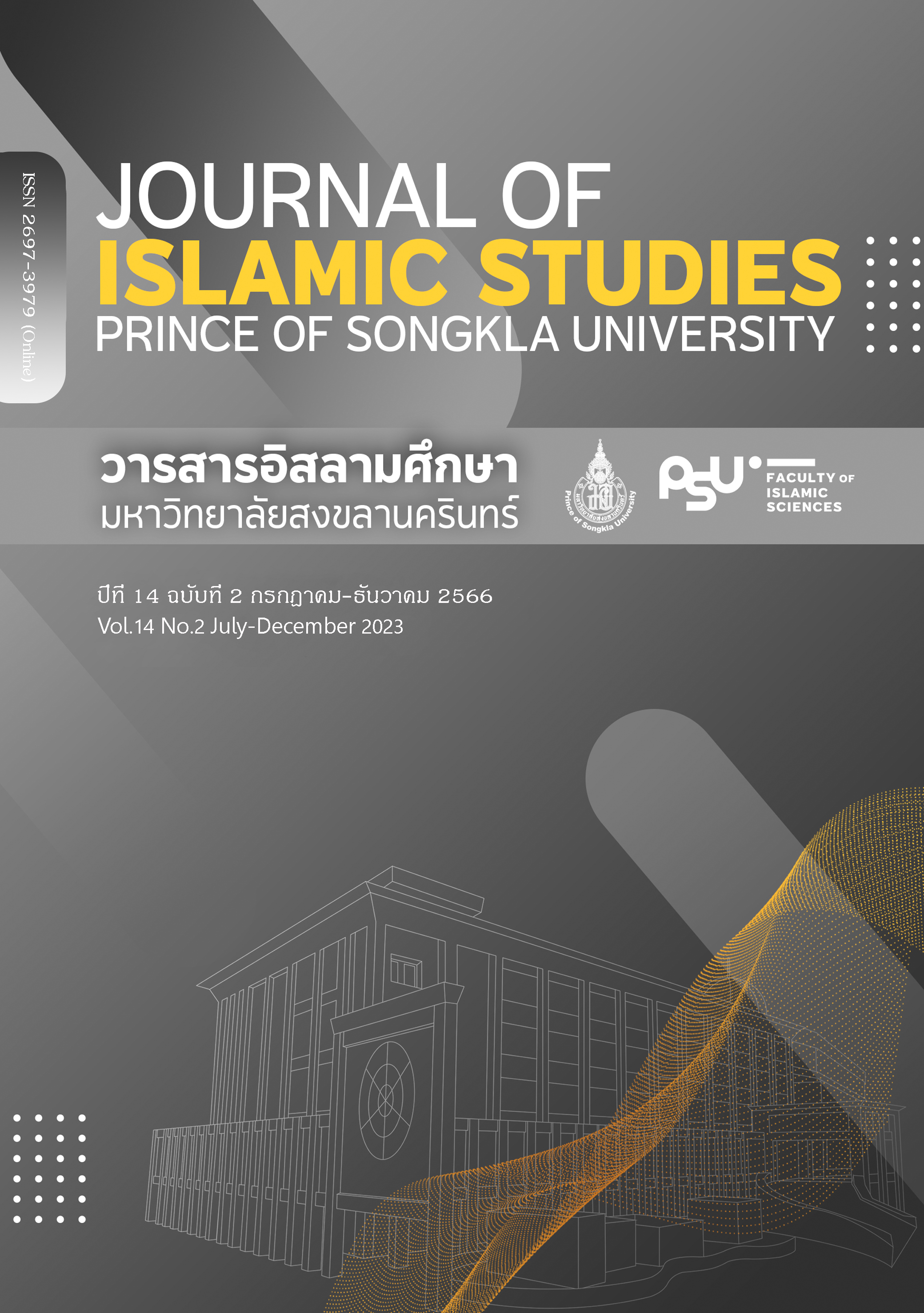Attitudes of Thai Muslims Towards Following Orders and Measures to Prevent The Spread of Coronavirus Disease 2019 (COVID-19) From The Sheikhul Islam Office
Keywords:
Muslims in Thailand's, coronavirus 2019 (COVID-19)Abstract
Objective: This research the objective is to study the attitude of Thai Muslims towards following orders and measures to prevent the spread of coronavirus disease 2019 (COVID-19) of the Sheikhul Islam Office.
Methodology: The sample group used in this research included people in the area of Pattani Province. Yala Province and Narathiwat Province, totaling 400 people. The research instrument was a questionnaire. Statistics used to analyze the data include averages. and standard deviation.
Research Findings: People in the three southern border provinces, namely Pattani Province Yala Province and Narathiwat Province Most have a positive attitude towards the measures to prevent the spread of coronavirus disease 2019 (COVID-19) of the Sheikhul Islam Office. Because such measures are consistent with Islamic principles, namely the preservation of human life. Or it can be called protection of life security. Because this principle aims to protect life from physical harm. or harming any part of the body and will cover the treatment and prevention of health or eliminating various diseases, especially epidemics such as the coronavirus that which is the form of adjustment in religious practice It will consist of refraining from doing what is compulsory. Approval for prohibited acts and changing forms of religious affairs.
Applications: 1) Office of the Provincial Islamic Committee The research results can be used to adjust policies for religious practices in the epidemic situation that are appropriate to the local context. 2) Mosques in the area By the Islamic Committee of the Mosque It consists of Imam Khateb Bilal committee. and the mosque the results of this research can be used as a guideline for adjusting the model for adapting religious practices in an epidemic situation that is appropriate for the local context. 3) Educational institutions university professor Muslim scholar by applying knowledge about the adjustment patterns of Muslims in the three southern border provinces that are consistent with Islamic principles to be used in academics, research, teaching Disseminate and expand knowledge
References
Smitnan Yongstar. (2020). Ramadan: How are Muslims adapting to Ramadan amid the pandemic COVID-19. https://www.bbc.com/thai/thailand.
Narongraksakhet, I. Salaming, M. Kaewtubtim, M. Al-Usamah, A. Jehte, R. (2565). Culture and Believes of Thai Muslims in Southern Border Provinces of Thailand in Protecting and Reducing of the Spreading of the Virus Corona Disease 2019 by Islamic Teachings, Health Principles and Local Wisdoms. Journal of Islamic Studies, Prince of Songkla University. 13(2), 1-19. https://so03.tci-thaijo.org/index.php/JOIS/article/view/260186/175741.
Katih, I., & Hayeemase, N. (2020). Adaptation of Wasatiyyah Islami-ah among Intensive Islamic-Studies-Program Teachers in the Government Schools in the Pattani Area 1. Journal of Islamic Studies, Prince of Songkla University, 11(1), 60–74. https://so03.tci-thaijo.org/index.php/JOIS/article/view/240158
Rungrut S., Maso S., Kadem, Y. (2563). Impacts of Economic and Social Matters from the COVID-19 Pandemic among the People in Yala City Municipality. Faculty Humanities and Social Sciences. Yala Rajabhat University.
Meedsen P., Yama M. (2565). Patterns of Health Promotion System Development in a Multicultural Context in the 5 Southern Border Provinces of Thailand. Journal of Islamic Studies, Prince of Songkla University, 13(2), 81–98. https://so03.tci-thaijo.org/index.php/JOIS/article/view/262343/175750
Sabuding A., Kaseng Y., Ming N. (2565). Development of Students’ Thinking Process for the Maintenance of Life Based on Wasatiyyah Principle in the Spreading Situation of Corona Virus 2019 (COVID 19) by Adopting the Thinking Method Linked with the Main Islamic Purpose in line with Qadhaa and Qadar and Public Interest Principle. Journal of Islamic Studies, Prince of Songkla University, 13(1), 1–29. https://so03.tci-thaijo.org/index.php/JOIS/article/view/257626/173748
Downloads
Published
How to Cite
Issue
Section
License
Copyright (c) 2023 © The Author(s). Published by the Journal of Islamic Studies, Prince of Songkla University under the Creative Commons Attribution 4.0 International License.

This work is licensed under a Creative Commons Attribution 4.0 International License.
All articles Published in The Journal of Islamic Studies are author’s opinions, and not the responsibility of the Faculty of Islamic Sciences nor the editorial board. However any citation should be referred to the journal.
















